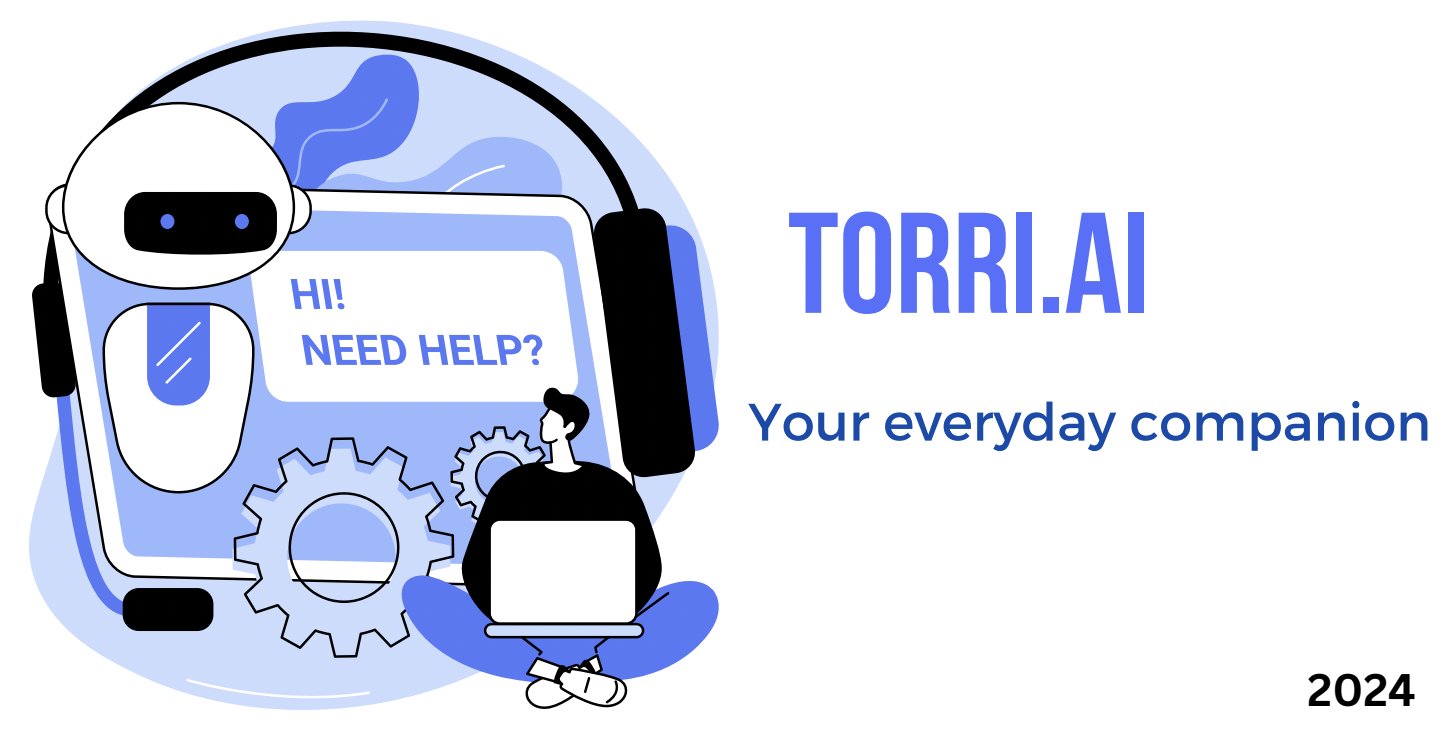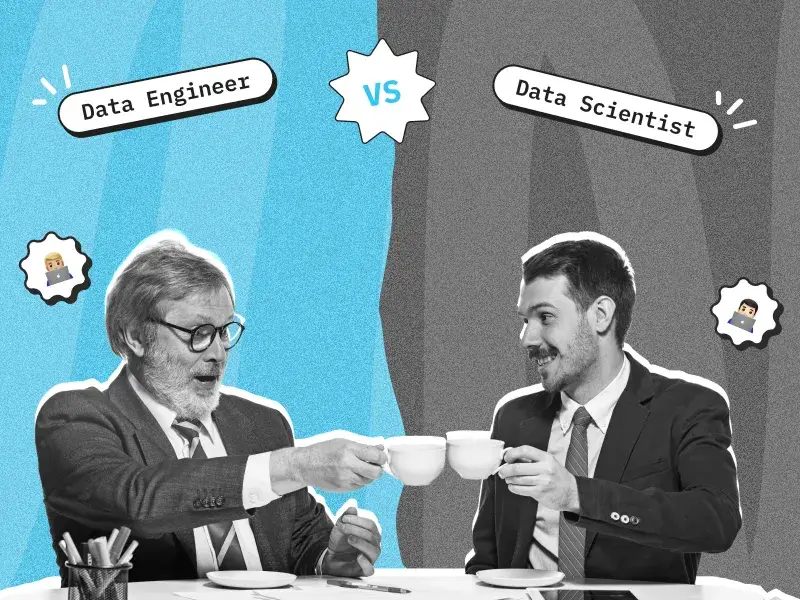Quick Summary
Data Engineer vs Data Scientist: Choosing the right role is crucial for data-driven success. Data engineers create reliable data systems, while data scientists turn data into insights that drive strategy. Both are essential, but their functions differ to align with unique business needs.
Introduction
In today’s data-driven world, every business is faced with this critical choice: hire a data engineer or a data scientist. That choice can spell the future of your data projects and, thus, the success of your business. While both of them are equally important, the purposes they serve are different.
If you want to efficiently process large volumes of data to organize and manage them, data engineering services can be the backbone your business needs to build robust data pipelines. Let’s dive in and discover which role aligns best with your business goals.
Choosing the right role: Data Engineer vs Data Scientist
In the debate of Data Engineer vs. Data Scientist, it’s crucial to understand the unique roles each plays. While data scientists focus on analyzing and interpreting data, data engineering involves designing and maintaining the infrastructure that enables the smooth flow and processing of data.
What does a data engineer do in a business?
The Data Engineer is the backbone of data science projects. They design and maintain the systems that enable the smooth flow of data within an organization, focusing on pipeline optimization to ensure efficient collection, storage, and processing. Just like creating highways and pipelines for data to flow through, data engineers make data available and reliable to support data-driven decision-making processes. Thanks to this optimization, other professionals can work with data efficiently and effectively.
Tools Data Engineers Use
Data engineers focus on programming, database management, as well as system architecture. Some of the key data engineering tools to perform their duties include:
- SQL to interface with databases.
- Python for coding.
- Hadoop to manage large volumes of data.
- Data warehousing solutions for storing data in a structured format.
- Extract, Transform, and Load processes in preparing data.
Read more: Essential Skills and Certifications to Look For When Hiring a Data Engineer
What does a data scientist do in a business?
A data scientist should enable raw data to go all the way to actionable insights. He will be making use of statistics, machine learning, and data analysis to find any trend or pattern that will support decision-making. Data scientists quite often interact closely with business teams, providing solutions as per the availability of data. Their objective will be to make sense of complex datasets to produce meaningful insights that will drive business strategies.
Tools Data Scientists Use
Data scientists are experts in statistics, machine learning, and data visualization. They generally utilize the following tools:
- Python and R for data processing.
- Tableau for data visualization.
- Machine learning algorithms to forecast trends.
- Data storytelling to effectively communicate insights to an audience.
Data Engineer vs Data Scientist: Distinct Impact on Business
Data Engineer vs Data Scientist: Different Impact on Business Work – Let’s Take a Look
Data Engineer:
- Informed Decision Making: Producing reliable, quality data that lets the business make informed decisions.
- Scalability: The design of data systems that keep pace with the growth of the company and support an expansion in data volume and velocity.
- Operational Efficiency: Bottlenecks within the flow of data are removed, allowing smoother data access, hence increasing general business efficiency.
- Consistency and Accuracy: It ensures data is consistently accurate; hence, good insights are derived with a minimal chance of making poor decisions.
Data Scientist:
- Strategic Insights: Let data be translated into something actionable that drives business strategy and market positioning.
- Market Trends Analysis: The analysis of the market trends should be presented to businesses so that they can respond according to requirements and take pro-active decision-making.
- Risk Management: Predict possible risks for companies so that they can address the problems even before they take place.
- Customer Targeting: Refine marketing efforts with an accuracy in customer segmentation that increases personalization, implying greater effectiveness.
- Product Development: Guide product innovation and improvement according to the minute analysis of data on customer behavior and preference.
Read more: Hiring A Senior Data Engineer Remotely – Best Practices
Comparison Table of Data Engineer vs Data Scientist
| Aspect | Data Engineer | Data Scientist |
| Main Job | Sets up and manages systems to collect, store, and organize data for easy access. | Studies data to find useful patterns and insights that help the business make better decisions. |
| Primary Focus | Making sure data flows smoothly and is easy to find and use. | Making sense of data to find trends and insights that support business goals. |
| Key Skills | Organizing data and keeping it reliable; using tools to store and manage big data. | Analyzing data, finding patterns, and creating visuals to explain insights. |
| Tools They Use | Data storage tools (like SQL databases) and systems that handle large amounts of data. | Analysis tools (like Excel, charts) and tools to visualize data (like graphs and reports). |
| Impact on Business | Ensures data is accurate and easy to access so the business can rely on it to make informed decisions. | Turns data into insights that can guide business strategy, predict trends, and improve customer targeting. |
| Result for the Business | Delivers a reliable flow of data that helps in daily operations and decision-making. | Provides actionable insights that help the business grow, plan new products, and target the right customers. |
Read more: Data Engineering Consultant: How to Choose the Right Partner for Your Business
ROI Comparison: Data Engineer vs Data Scientist
While hiring a data engineer may require significant upfront investment, the efficient data systems they build lead to substantial cost savings over time. A well-designed data architecture not only reduces maintenance expenses but also boosts system performance, contributing to long-term financial benefits. This optimization directly enhances a business’s operational efficiency, delivering a strong return on investment (ROI).
Similarly, data scientists drive insights that can translate into increased revenue and cost reductions. Their work allows businesses to refine strategies and streamline operations, providing excellent ROI by leveraging data to make more informed decisions and optimize processes.
Conclusion
Perhaps one of the most significant decisions that will determine the success of your data projects is between choosing a data engineer and a data scientist. While both professionals play a vital and complementary role in unlocking the full potential of your data, understanding the respective functionalities of data engineering services versus data science will better position you for an informed choice tailored to your needs. Whether it’s a case of building infrastructure or morphing raw data into insights, the right people will drive your company toward longevity, with increased efficiency.
FAQs
Which role is better: Data Engineer or Data Scientist?
Neither role is inherently “better”; they serve complementary purposes. Data engineers focus on building and managing data infrastructure, while data scientists analyze and interpret data. The right choice depends on your business needs—if you require data organization, choose a data engineer; for insights, a data scientist.
Why does your company need a data engineer?
A data engineer ensures that data flows smoothly, is organized, and is readily accessible, enabling reliable data-driven decision-making. They build and maintain the infrastructure that allows other teams to access accurate, high-quality data efficiently, supporting business growth and operational efficiency.
Do all companies need a data scientist?
Not all companies need a data scientist, but those looking to leverage data for insights, strategic planning, and market analysis can benefit greatly. A data scientist helps transform raw data into actionable insights, driving decisions that can enhance competitiveness and customer satisfaction.
How many data engineers does a company need?
The number of data engineers depends on the company’s data needs, size, and complexity of data systems. Small businesses might need one or two data engineers, while larger companies with extensive data operations may require a team to manage, scale, and optimize data infrastructure effectively.
Is AI replacing data engineers?
AI is not replacing data engineers but is transforming their role. AI tools can automate certain tasks, like data cleaning and preparation, but data engineers are still needed to design, manage, and oversee complex data pipelines, ensuring data accuracy and reliability across systems.














 30 mins free Consulting
30 mins free Consulting 
 7 min read
7 min read 







 Love we get from the world
Love we get from the world 